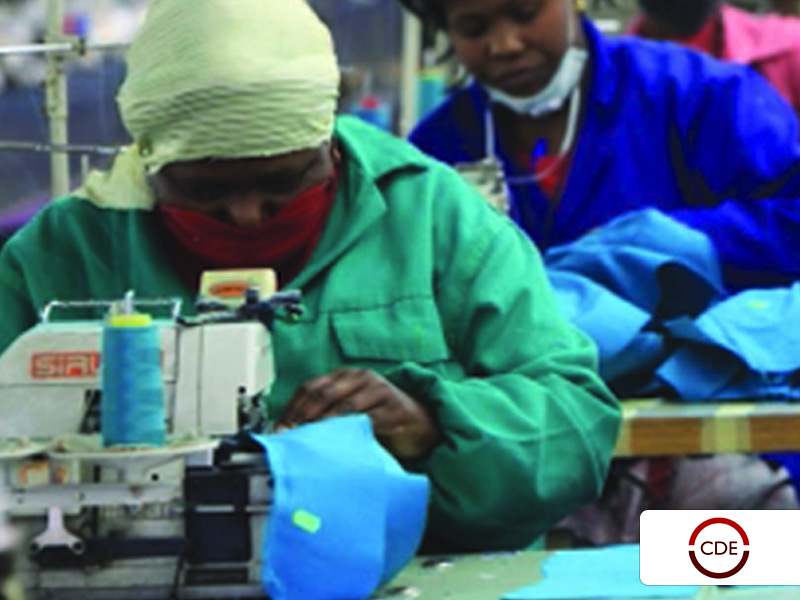Key Points:

- Job destruction in the clothing industry is happening at the lower end of the clothing production spectrum. Clothing producers in metro areas tend to produce for the more expensive, higher-quality, fast-fashion end of the clothing market and hence have more room to pay higher wages.
- Squeezed between rising wage costs and international competition, employment in the clothing industry has almost halved since 2003.
- Clothing is South Africa’s most labour intensive industrial sector, which is threatened by the compliance drive that forces all firms to comply with the minimum wages as set out by the National Bargaining Council for the Clothing Manufacturing Industry (NBC).
- The Department of Trade and Industry’s support programmes tend to favour the upper, capital intensive end of the production spectrum, as they encourage firms to upgrade their machinery and retrain workers, shifting producers out of the kind of low wage, low-productivity forms of employment necessary to absorb unskilled, unemployed South Africans.
Press release: Job destruction in the South African clothing industry



